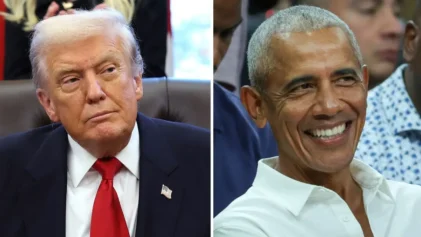
Conversely, if that same 2008 election were held again and just rich people were allowed to vote, Republicans would have won every state except a dozen.
So when Republicans got together in more than 30 states in recent years to push through these more stringent voting rules that require voters to show IDs, they likely knew that they would be shutting down the poor just as much as African Americans — and thus substantially improving their lot at the ballot box.
This finding was contained inside a fascinating report out of Brazil by Princeton economist Thomas Fujiwara, showing that when the nation of Brazil made it easier for poor people to vote, the percentage of Brazilian babies born at low birth weight declined. So helping the poor cast their ballots easier resulted in healthier babies and healthier Brazilians.
Fujiwara was able to conduct such a vital test because Brazil went from confusing paper ballots to more sophisticated electronic voting that showed pictures of candidates and used numbers instead of words. So poor voters, particularly those who were illiterate, had a much easier time voting and consequently voted in much higher numbers. Because they overwhelmingly supported left-wing parties, more progressive candidates were elected, who chose to increase spending on public health care for the poor.
Like a line of dominoes, more robust public health care services led to more mothers seeing doctors, thus reducing the number of babies born at low birth weight.
Fujiwara was able to track the effect of this voting change throughout the country, going state-by-state, and found that in areas with electronic ballots, poor voters filled out more ballots correctly. There were correlations between the introduction of electronic voting and increases in public health funding, increases in the number mothers getting prenatal health care, and declines in the number of low-weight babies born.
This Brazilian study is useful for Americans trying to understand why Republicans are fighting so hard to require voters to show IDs. In Texas, for instance, the Justice Department on Wednesday night asked the U.S. Supreme Court to quickly bar Texas from using its strict new voter ID law, claiming registered voters across Texas will be irreparably harmed by it.
That Texas law was castigated last week in a decision by U.S. District Judge Nelva Gonzales Ramos of Corpus Christi. In her ruling, Ramos, an Obama appointee, said the Texas law “creates an unconstitutional burden on the right to vote, has an impermissible discriminatory effect against Hispanics and African-Americans, and was imposed with an unconstitutional discriminatory purpose.” She said it “constitutes an unconstitutional poll tax.”
But the U.S. Court of Appeals for the 5th Circuit late Tuesday issued a stay of Ramos’ ruling, saying it would change Texas voting rules too close to the election.
The three-judge appeals panel said it was following the direction of the U.S. Supreme Court, which it said has warned against instilling confusion by changing voting rules too close to an election. Last week, the Supreme Court blocked Wisconsin from implementing a law requiring voters to present photo IDs because it was too close to the election. The appeals court said the “value of preserving the status quo” trumped other considerations.
But if we use Brazil as a guide, getting the poor easier access to the polls can have a profound impact on their lives. In fact, we don’t even have to go to Brazil: a recent report in The New York Times showed that President Barack Obama sought to spend far more on means-tested anti-poverty programs — programs providing food, housing, education, health care and cash — than other first-term Democratic presidents, according to inflation-adjusted numbers from the Congressional Budget Office.
Obama earmarked 17 percent of his budget for these needs, versus President Bill Clinton’s 12 percent and President Jimmy Carter’s 8 percent. As far as outcomes, Christopher Wimer of Columbia University found that tax and transfer policies lowered the poverty rate by only 1 percentage point in 1967 under President Lyndon B. Johnson, considered the great savior of the poor with his “War on Poverty,” but by almost 13 points in 2012 under Obama.


